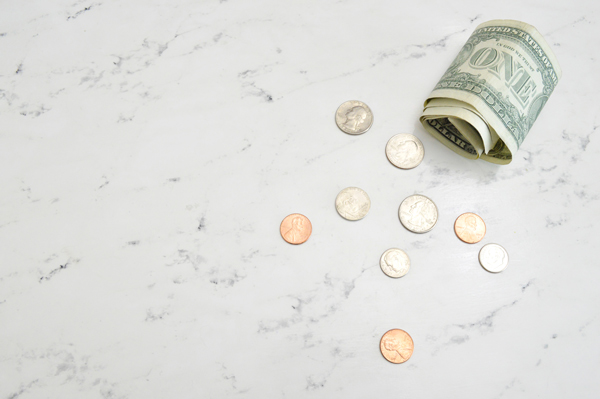I have a confession to make: most of the time, I can’t stand to check my bank account. Of course, there’s always a time when I just have to bite the bullet. Pull up my bank statement and start paying some bills. Most of the time, I prefer to wilfully stay in the dark, only slightly concerned that my card may or may not be declined. Kinda-sorta hoping that I’ll be pleasantly surprised during my next purchase. Even worse, I sadly believe this naïve behaviour is preferable to having my current financial situation confirmed for me proactively.
Plenty of people experience the anxiety surrounding finance. Actually, most people would agree that money matters and mental health are inarguably connected. Because that’s what it is to put a name to it — the anxiety you feel when you’re about to check your account, the stress you feel about making ends meet and the urge to splurge when you’re at a high point in your life — it’s your mental health. Your financial wellness affects your mental wellness and your mental wellness does the same in return.
Keeping the relationship healthy
Money and mental wellness is a reciprocal relationship, one that a lot of us don’t have figured out quite yet. Just like all of the other relationships in our lives, it’s critical to set boundaries and communicate effectively. I.e. check your bank account already, people! If you’re an emotional spender who spends money to make yourself feel better, you’re encouraging a harmful link between happiness and finance. That can only do more harm than good. Similarly, if managing your finances makes you feel anxious or stressed, you may feel discouraged from taking control of your money situation. In drastic cases, that may leave you feeling even more hopeless about getting your life back on track.
It’s difficult to hold ourselves accountable regarding money matters, but it’s necessary. Part of taking care of yourself and establishing your own mental wellness is taking control of the few things that we can in life to establish emotional, physical and mental stability. You may not be able to control your pay or when your check comes. But you can proactively establish organization that leaves your financial situation less of a mystery to you. And that certainty — knowing when and where your money goes each pay check — relieves a lot of unwarranted anxiety in your life where it’s avoidable.
Making Ends Meet
As do most 20-somethings, I stress about making ends meet. I get worried that my paycheck will not cover the bare necessities, let alone luxury activities like the cinema. And of course, it’s quite normal to be concerned or disappointed about not being able to go out with friends. At the same time, you shouldn’t be actively anxious about your budget and your budgeting tactics. You certainly shouldn’t experience legitimate fear every time you have to check your account. Unfortunately, your relationship with money is most likely going to be one of the most important relationships in your life. That doesn’t mean it has to be an unhealthy one.
Recently, I’ve begun looking into budgeting apps that provide organizational templates that allow me to keep track of where my money is going each month, when bills are creeping up on me and when I’m getting close to outspending myself. There are a few options; both the Mint and Goodbudget Budgeting applications are even free on the Apple App Store. When I keep my application information updated, I’m granting myself the luxury of knowing just how much I can afford to put away or spend each week. This awareness has made all of the difference in my relationship with money, and that certainty–most importantly, that mental stability–is quite priceless.
